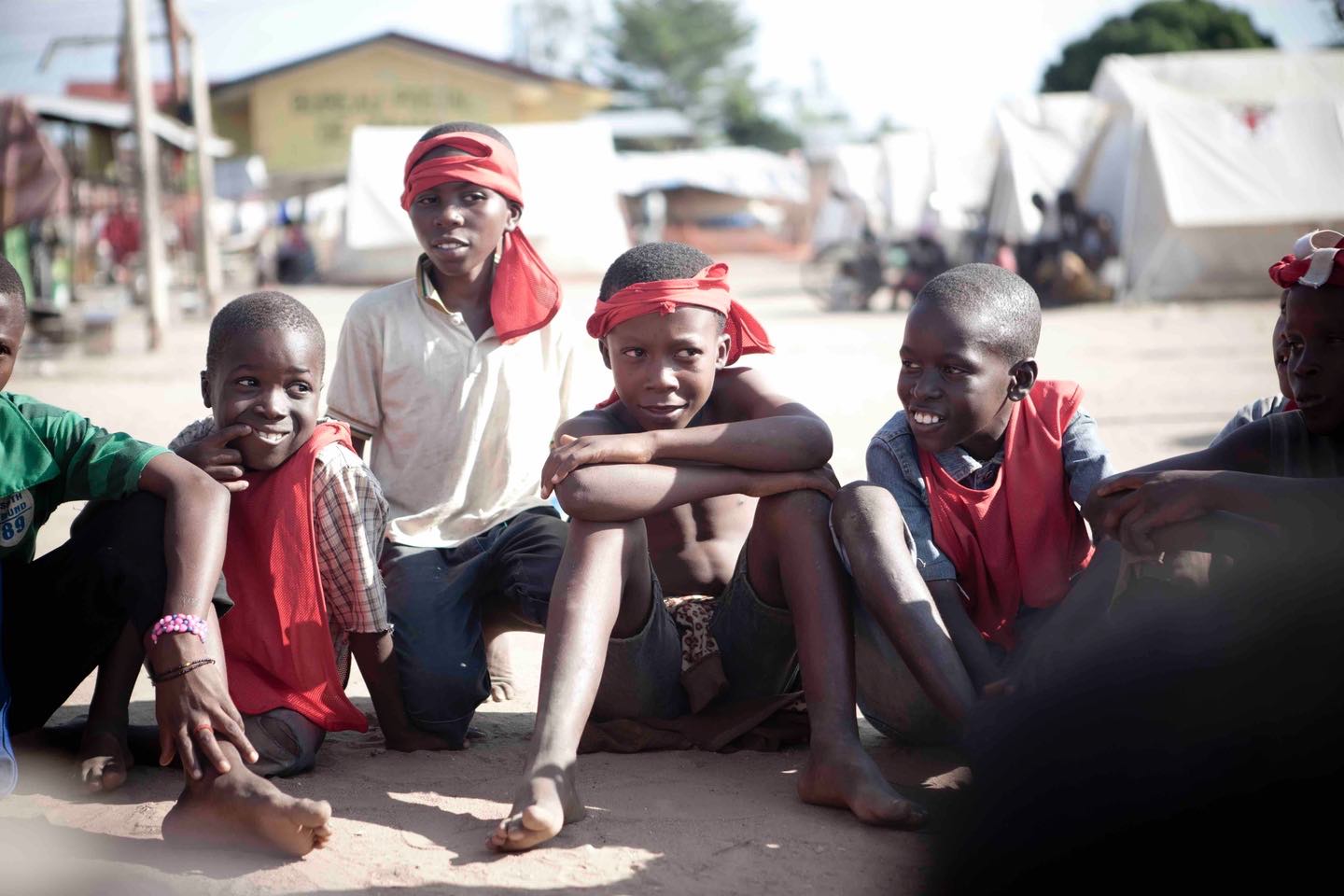
academic success
ISSUES RELATED TO THE THEME
At school, the child/student faces various obstacles (difficulties in Mathematics, conflict with another student, absence from school to help his parents in the field, etc.) that can put him in a situation of failure. Faced with these obstacles and failures, a child may not react, letting himself go, even to the point of abandonment. These various situations can lead the child to experience emotions such as anger, sadness, fear. Understanding, accepting, managing these emotions is learned to allow everyone to live with and react appropriately. A child learns knowledge at school but also learns to discover and get to know himself. A child can gain self-confidence, can feel confident if he or she is convinced of having qualities, of being good at certain activities, but also if he or she perceives his or her shortcomings, weaknesses and seeks to improve, to progress. To respect others, his environment, he must first respect himself, accept what he is, defend his own ideas and convictions.
Too many students because of their socio-economic situation, their gender, or a disability do not access school or leave it too quickly. The school does not give everyone enough chance to succeed because it too often creates a competitive and elitist climate, excluding students who do not meet certain criteria. Disrespectful behaviour between students (mockery for example) is unfortunately very common in schools. They emanate from prejudices, from false representations that children may have, but also simply from jealousy. Indeed, the notion of competition between students is very present in schools (achieving the best academic results, being better than the other). This very individualistic spirit, where the notion of group and mutual aid is relegated to the background, can only favour the exclusion of the weakest, the most vulnerable. Solidarity between students is not sufficiently promoted, defended. It is important to make a child who is doing well at school aware that he or she has everything to gain by supporting and helping his or her peers to progress.
Sesionet
Sesionet
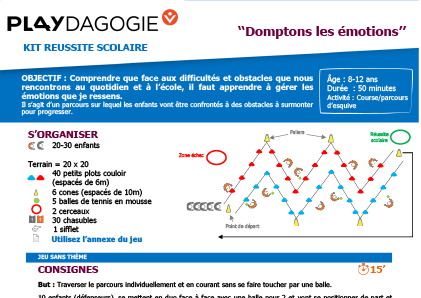
Jeu de course d'évitement pour permettre aux élèves de comprendre que face aux difficultés obstacles qu'ils rencontrent au quotidien et à l’école, il faut apprendre à gérer les émotions qu'ils ressentent.
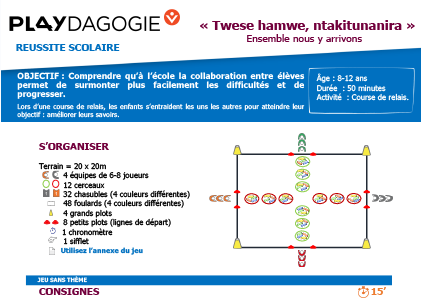
Jeu traditionnel de relais pour permettre aux élèves de comprendre qu’à l’école, la collaboration entre les élèves permet de surmonter les difficultés et de progresser.
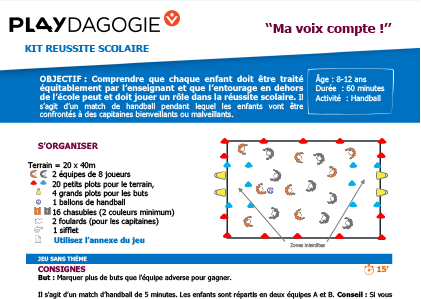
Séance de handball pour permettre aux élèves de comprendre que chaque enfant doit être traité équitablement par l’enseignant et que l’entourage en dehors de l’école peut et doit jouer un rôle dans la réussite scolaire.
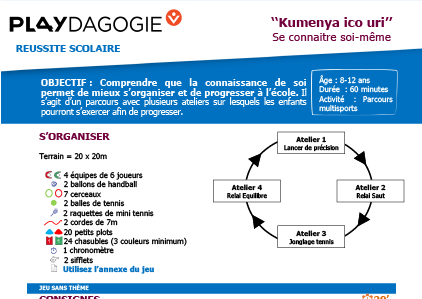
Parcours sportif pour permettre aux élèves de comprendre que la connaissance de soi permet de mieux s’organiser et de progresser à l’école.
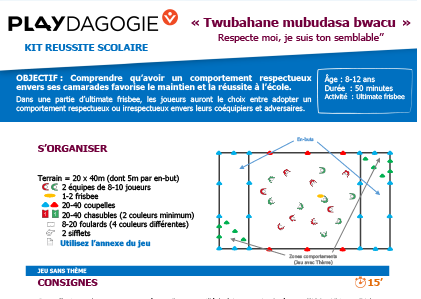
Séance d'ultimate frisbee pour permettre aux élèves de comprendre qu’avoir un comportement respectueux envers ses camarades favorise le maintien et la réussite à l’école.
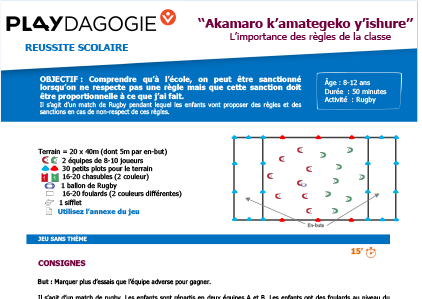
Séance de rugby pour permettre aux élèves de comprendre qu’à l’école, on peut être sanctionné lorsqu’on ne respecte pas une règle mais que cette sanction doit être proportionnelle à ce qu'ils font.
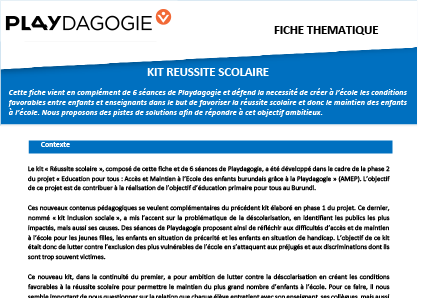
La fiche thématique Playdagogie Réussite scolaire présente le contexte, les enjeux et les notions clés liés à la thématique pour accompagner les enfants.
Download kit
 FR
FR EN
EN